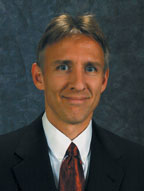My seatbelt is fastened; my seatback and tray
table are in their upright and locked positions. As the plane
pulls back from the gate, a voice comes over the loudspeaker above
my head, "At this point we ask that all portable electronic
equipment, cell phones and two-way pagers be turned off and stowed
until we reach our cruising altitude."
Just what exactly are they trying to tell me? Hasn't every part
of this aircraft been fully tested and found to comply with FAA
specifications? Hasn't it been exposed to emissions sources a
billion times more powerful than my laptop? Isn't this plane capable
of withstanding direct lightning strikes and fields strengths
greater than a thousand volts per meter?
As an EMC engineer who's familiar with aircraft EMC design and
testing, I'm one of the first to power off my laptop. True, it's
very unlikely that my personal electronic equipment or anyone
else's will interfere with critical systems on a commercial aircraft.
However, it can happen and has happened. As EMC engineers, we're
aware of just how vulnerable electronic systems can be. Current
EM susceptibility tests subject hardware to pulses or CW signals
with uninteresting modulations. A relatively weak signal with
the right frequency and the right modulation can be much more
damaging than a strong pulse. Now that intentional EMI is becoming
a greater concern, I suspect that our test procedures will have
to change. One of the greatest things about the EMC profession
is that there's never a shortage of new challenges.
Speaking of challenges, the IEEE Signal Processing Society was
recently forced to cancel their flagship conference due to concern
about the outbreak of Severe Acute Respiratory Syndrome (SARS).
The 2003 IEEE International Conference on Acoustics, Speech and
Signal Processing (ICASSP) was scheduled to be held April 6-10
in Hong Kong. Other conferences have also been affected by SARS,
by the economy and by the war in Iraq. This includes the 2003
IEEE International Symposium on Electromagnetic Compatibility
in Istanbul, which is being co-sponsored by the IEEE EMC Society.
Although more than 500 papers were originally scheduled to be
delivered at this conference, the attendance is currently projected
to be lower. Nevertheless, it should be a good conference. We'll
provide a summary of the conference activities in the next issue
of the EMC Newsletter.
Arrangements for the 2003 IEEE Symposium on EMC in Boston are
proceeding on schedule. Boston is one of my favorite cities and
August is a nice time of year to visit. Despite the recent world
events, this symposium promises to be one of the biggest in our
history. The opportunities for EMC engineers are not the same
as they were a few years ago, but they are still numerous and
the technical challenges are as exciting as they have ever been.
The Boston symposium will showcase many of these new challenges
and provide an excellent forum for the exchange of ideas. I hope
to see you there! EMC
 President's
Message
President's
Message